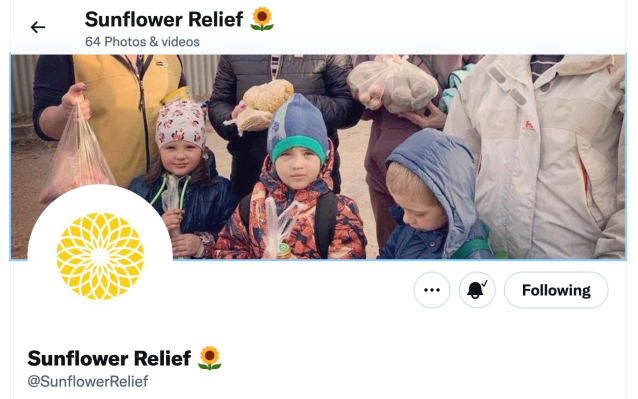When Russia invaded her home country of Ukraine, U.K.-based tech entrepreneur Irra Ariella Khi, co-founder of Zamna, set up a fundraising page to directly support people inside Ukraine. Khi’s father (aged 70) and godmother (aged 82) are both in Ukraine, as are her stepsister and her children. Khi then temporarily stepped back from her day job at Zamna (which runs a blockchain system to securely share and verify passenger identities for airlines and travel authorities).
The next few weeks were a blur.
But although her fundraiser raised plenty of money, Khi realized there was no viable NGO to distribute the supplies on the ground in the middle of a fast-moving war zone. She also realized that the only way of getting supplies into Ukraine would be with a team that could speak at least three languages: Ukrainian, Polish and Russian (Khi speaks all three). “There was a huge disconnect between western relief efforts and their ability to get aid across the border,” she said.
This led her to creating the Sunflower Relief NGO.
She jumped in and got her “hands dirty”, doing dozens of video calls with groups of local drivers inside Ukraine in order to get supplies in.
She was joined by fellow Ukrainian volunteers in London, building up a team of 10 people initially, all multilingual.
Seven months later, she now has a team of 200+ people spread internationally.
Luckily, her role at Zamna meant she could also call many an airline CEO to talk about shipping supplies to countries bordering Ukriane, via fright airlines. Some even re-routed planes after a call from Khi.
As well as distributing aid she also built a network of hyper-local information on the ground, building up a network of contacts in the country and collecting data from local sources, using messaging platforms such as SMS, Telegram, WhatsApp and sometimes Facebook Messenger.
Since then, Khi has tapped individuals in venture capital and private equity to back Sunflower.
“Every penny we raise goes directly to the families we have supported through our network. The call to action is you’re in venture capital and you can spare some resources, please get in touch because we’ve been raising money single-handedly for six months and every penny goes to helping people on the ground. We are all volunteers at Sunflower.”
“We’re on a tiny budget and our operational budget never touches our aid budget. We’re talking about pure donation. We don’t have enough aid money to help those who really need the most in the war zone,” she told me.
“A lot of very senior partners and VCs who donated said ‘just send me the reports. We don’t want any publicity or our name in lights.’ A lot of it has been driven by the fact that they want high integrity, verified receivers, because donating to bigger organisations doesn’t give you what Sunflower gives you, which is very specific case reports, pictures, videos, responses from people. We’ve got over 250,000 people that we’ve helped now, all of them have been documented and you can really see the impact you’re making,” she told me over a call.
And Sunflower has certainly been busy.
For Founders Forum 2022, Irra helped coordinate the appearance of President Zelenskyy as a hologram, and raised an incredible $1 million during this year’s event.
It’s now matched £2.25 million to verified NGOs in Ukraine. Here are some examples of how it’s helped to date:
- Sunflower Relief was asked to find funds and logistics to help buy food/groceries for 3,500 internally displaced refugees in Ukraine who currently live in schools and nursery premises — the call for help came from the city council in Kamianets-Podilskyi, which is in central Ukraine. Thanks to partners Serhii Nizhinskii, Asociatia pastel, IsraAID Germany e. V. c/o ZWST, and Civic Radauti Association and supplier Riso Vignola, Italy, they managed to gather 27 pallets, five tons of goods in total, all of which were paid for using the donation of the Accel organisation.
- Glib Lazorenko (Surgeon) — asked for help to get medical instruments for injured people. Critical medical aid was delivered to the State Scientific Institution “Scientific and Practical Center of Preventive and Clinical Medicine” in Kyiv for seriously injured Ukrainian civilians and soldiers.
- Sunflower helped fund the delivery of aid by Baby Lifeline; Andrea Fraser from Justice.org from Edinburgh, NHS Scotland, a U.K.-based charity (“the consignor”) donated to Ukrainian Hospital in Kharkiv and Mechnikov Regional Clinical Hospital.
